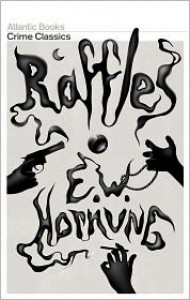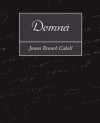Currently reading
Sin Titulo
The Old Gringo
Domnei
White Apples
Tarzan of the Apes
The Dead of Night: The Ghost Stories of Oliver Onions (Tales of Mystery & the Supernatural)
Swann's Way (In Search of Lost Time, #1)
The Land of Laughs
Voyage Along the Horizon
Palm-of-the-Hand Stories
 the idea of raffles, the gentleman thief, obverse of the legendary sherlock holmes, gentleman detective (the creation of hornung's esteemed brother-in-law arthur conan doyle), thrills me. and i can't say i don't normally adore the idea of working outside the law to balance the scales of justice -- i watch timothy hutton's modern-day robin hood crew on leverage as often as possible. there is no doubt that raffles is in some ways the progenitor of this type of character but in reading the book i realized the only redress was being made to "the cracksman"'s pocket. before reading this collection of stories, i had visions of hutton's character nate ford, and the great french character arsène lupin or baroness orczy's scarlett pimpernel but instead found raffles anticipating leopold and loeb:
the idea of raffles, the gentleman thief, obverse of the legendary sherlock holmes, gentleman detective (the creation of hornung's esteemed brother-in-law arthur conan doyle), thrills me. and i can't say i don't normally adore the idea of working outside the law to balance the scales of justice -- i watch timothy hutton's modern-day robin hood crew on leverage as often as possible. there is no doubt that raffles is in some ways the progenitor of this type of character but in reading the book i realized the only redress was being made to "the cracksman"'s pocket. before reading this collection of stories, i had visions of hutton's character nate ford, and the great french character arsène lupin or baroness orczy's scarlett pimpernel but instead found raffles anticipating leopold and loeb:"A matter of opinion, my dear Bunny; I don't mean it for rot. I've told you before that the biggest man alive is the man who's committed a murder, and not yet been found out; at least he ought to be, but he so very seldom has the soul to appreciate himself. Just think of it! Think of coming here and talking to the men, very likely about the murder itself; and knowing you've done it; and wondering how they'd look if they knew! Oh, it would be great, simply great!" - from "Wilful Murder"
much has been made of the fact that raffles has a code -- he does not murder; he only steals when he has need. as it turns out raffles doesn't actually subscribe to the code he lays out -- he seems to make excuses for lapses of conduct often, perhaps revealing how little it means -- see the story quoted above for a revision of his "no murder" rule, or "A Costume Piece" for how he decides to go ahead with a robbery which won't alleviate his financial constraints but simply for the challenge. it would seem that the victorians would identify with the idea that crime was understandable if it prevented one from quitting their "rightful" sphere, and for those who stood a high moral ground hornung introduced the misgivings of bunny (his sidekick and former fag at public school) as a balance to raffles' complete lack of ethics.
as members of the unmonied upper class, both raffles and bunny are part of Society and are terrified to lose their standing (though not so much so that they quit the gambling and the tailors that have brought them low) in the class system they so adore. but when i shake it out, all i can see is that raffles is a dated sociopath cricket player, who will not quit his sphere despite his inability to afford it and is a relic of the deep divide in classes as much as cricket and the public school system. i was woefully misapprehended regarding the character of raffles -- i expected that this much ballyhooed code was real, that raffles' choices might result from some reflection, be difficult to arrive at, or borne of something i could more easily identify with, instead i found him to be a character completely ingrained in the class system: entitled, selfish, and grasping. i don't say that this makes raffles less of an interesting character but he's no raskolnikov either. i don't feel any sense of conflict or even engagement when he embarks on a plan, or a concern for his well-being because his motivations don't mean a thing to me -- or to him, either, it seems. his friend bunny is the loyal dimwit who assists him in schemes which brings me to what i liked least about the raffles stories: the mode in which the action is delivered.
in the majority of these stories raffles conceives of a plan of action and does not share its details with bunny. we are then left to hear him relate to bunny the plan after the fact, an issue that bunny himself points out:
"Then you should have let me know when you did decide. You lay your plans, and never say a word, and expect me to tumble to them by light of nature. How was I to know you had anything on?"
i really didn't like this device at all and the revelation of the plan was never so exciting or elaborate in the recitation that i gave up my resentment. i found the structure of the stories boring -- a lot of exposition, and when they are actually engaged in action it's often of a boring sort: for example, in one tale, bunny is awakened to sounds of a struggle and tasked with holding a suspect while the scotland yard detective who has nabbed the competitor thief goes after the others. bunny stands there holding the suspect. there's a lot of talk. he holds him some more. hooey! hold me back from this gripping story!
i can say i found his prose very clean, and the dialogue charming -- just overused in exposition. i was going to give the book only two stars but seeing as it gave me lots to think about in terms of what not to do with structure and characterization, and really is the precursor to so many other gentleman thieves that i am in debt to hornung for his contribution to the archetype, and so the collection gets three stars on those merits though i don't know how long that shall stick.
N.B. before anybody takes my analysis of raffles and his lack of morals as evidence that i just don't like books with amoral characters, i'll say when reading this i thought of how much more i loved bertie woosters attempts at stealing a cow creamer, o. henry's pastiche of shamrock jolnes, not to mention his tales of burglars and thieves, and how engaged i was in [b:Perfume: The Story of a Murderer|343|Perfume The Story of a Murderer|Patrick Süskind|http://d.gr-assets.com/books/1328815062s/343.jpg|2977727] despite the repugnance of the main character.
bonus review material for the literary detectives out there: the george orwell essay that is quoted liberally whenever raffles is discussed is actually a comparative book review he wrote in 1944. it is available online here: http://orwell.ru/library/reviews/chase/english/e_bland
i myself appreciated the opportunity to read orwell's commentary on raffles in context -- most of the time only a line or two is referenced, and usually makes it seem like orwell thought hornung a genius. on my own reading, i see that orwell did find interest in raffles relationship to english society especially in his relationship to cricket, and that he liked the book more than the one he was comparing it to. it seems to me that he thought the book good for its small lights, and was not quite as overpowered by it as critical essays and reviews who cite him would have one believe. :)













